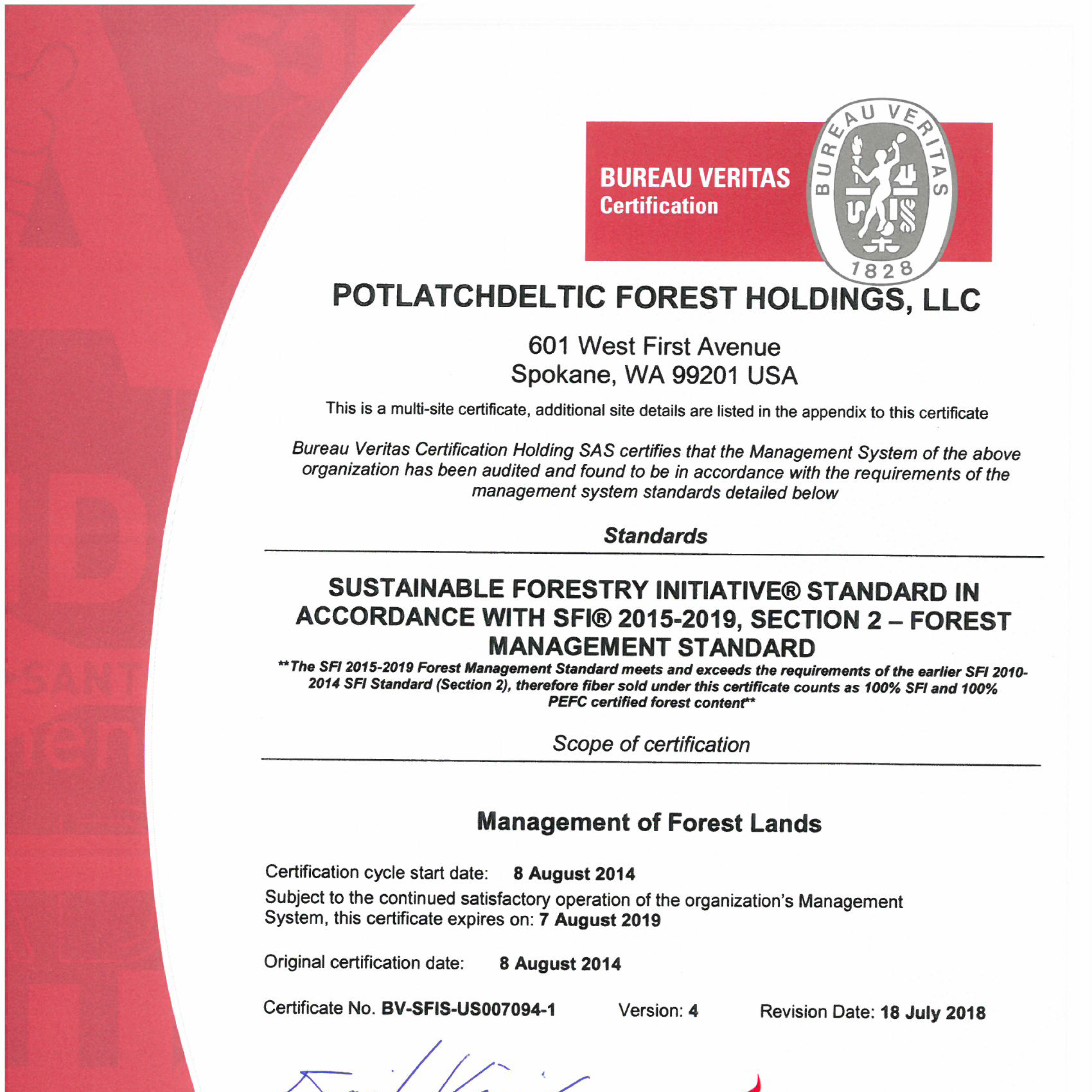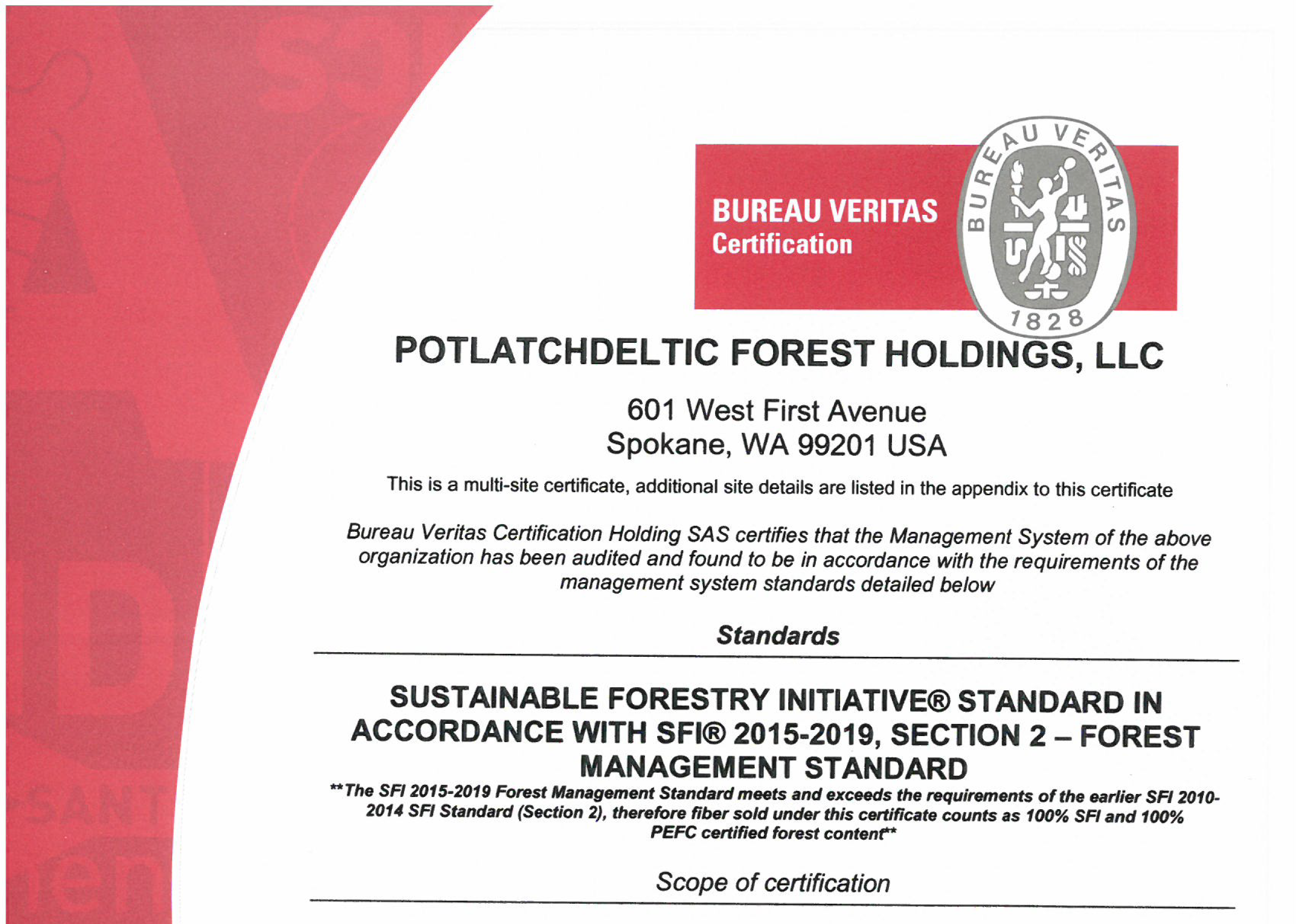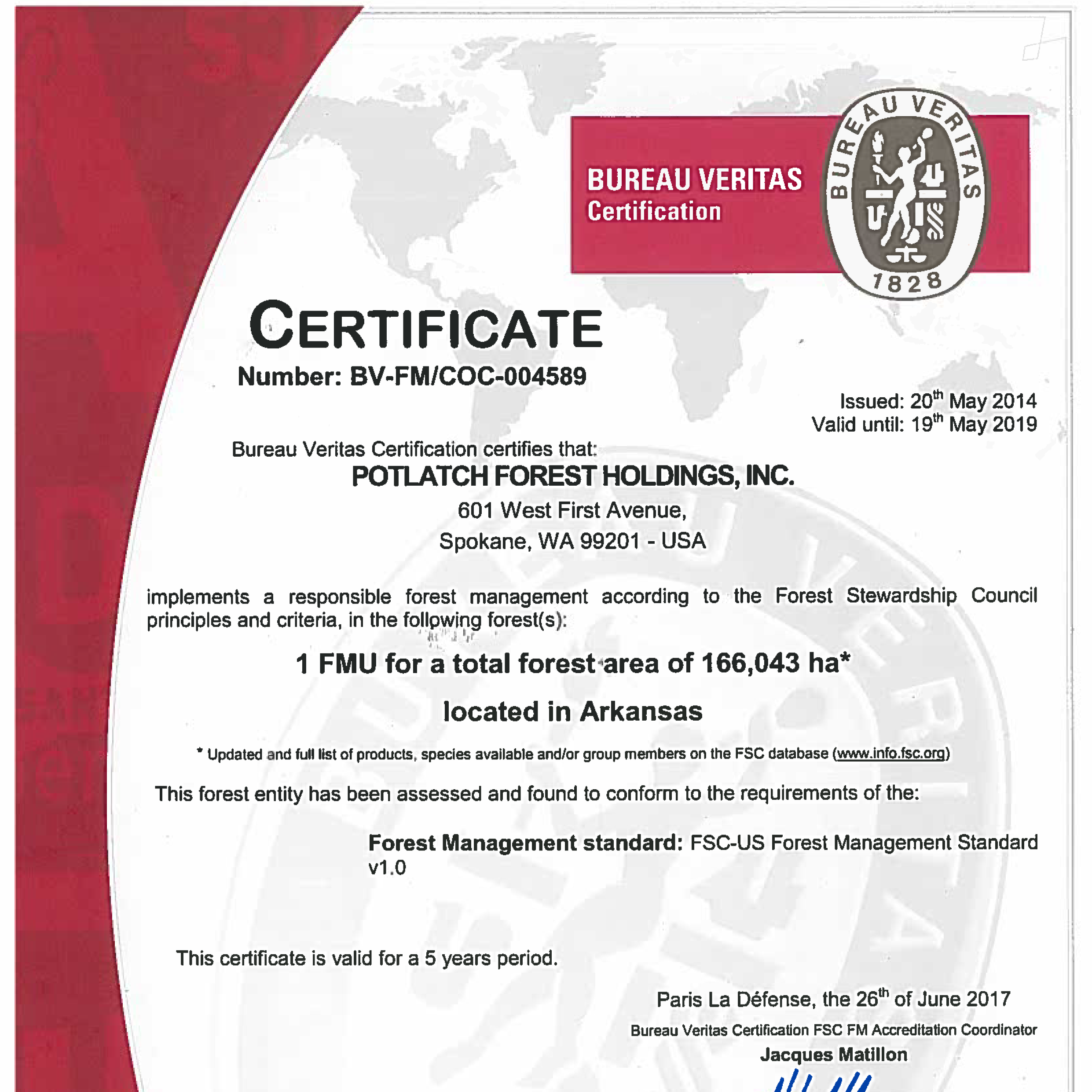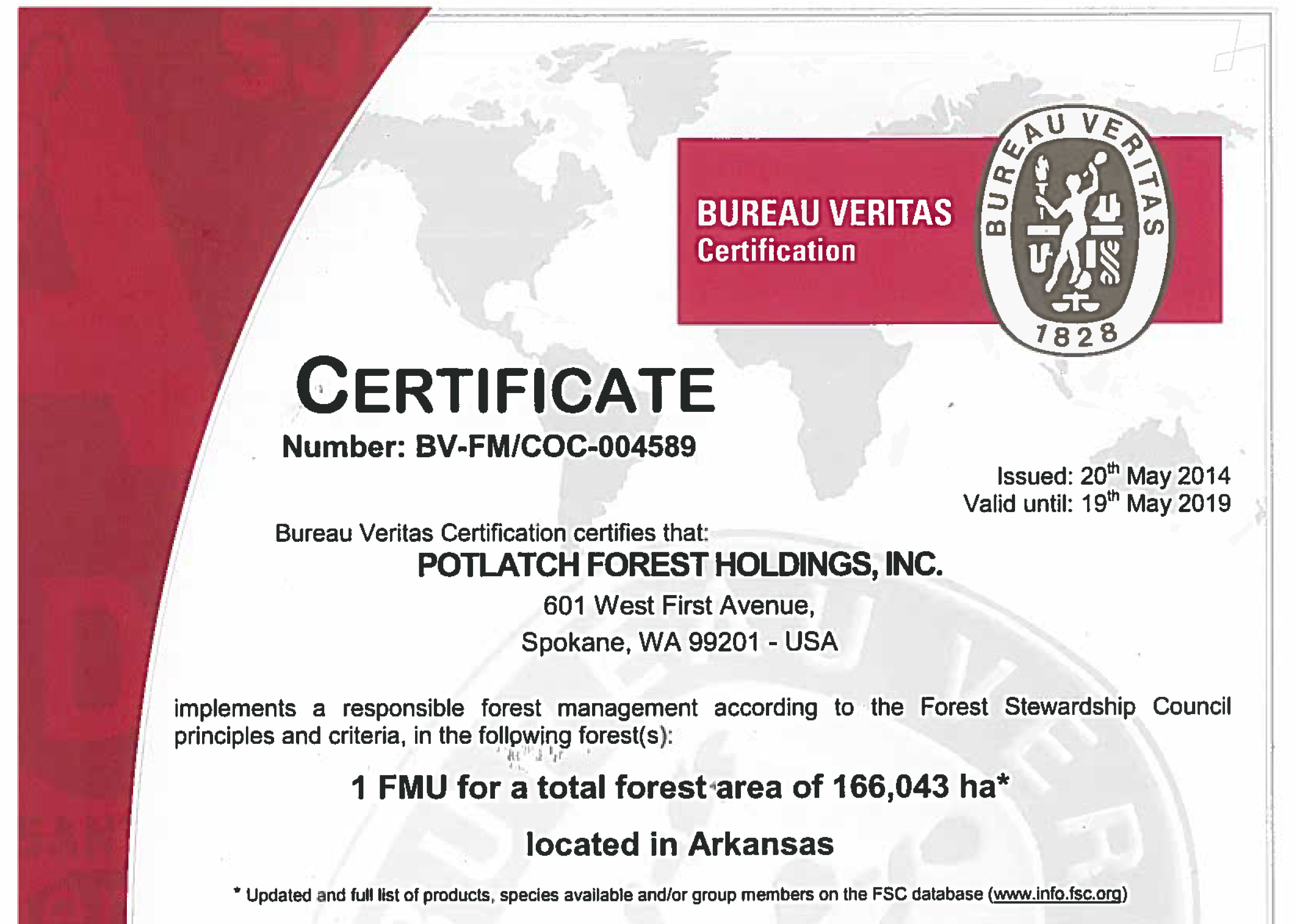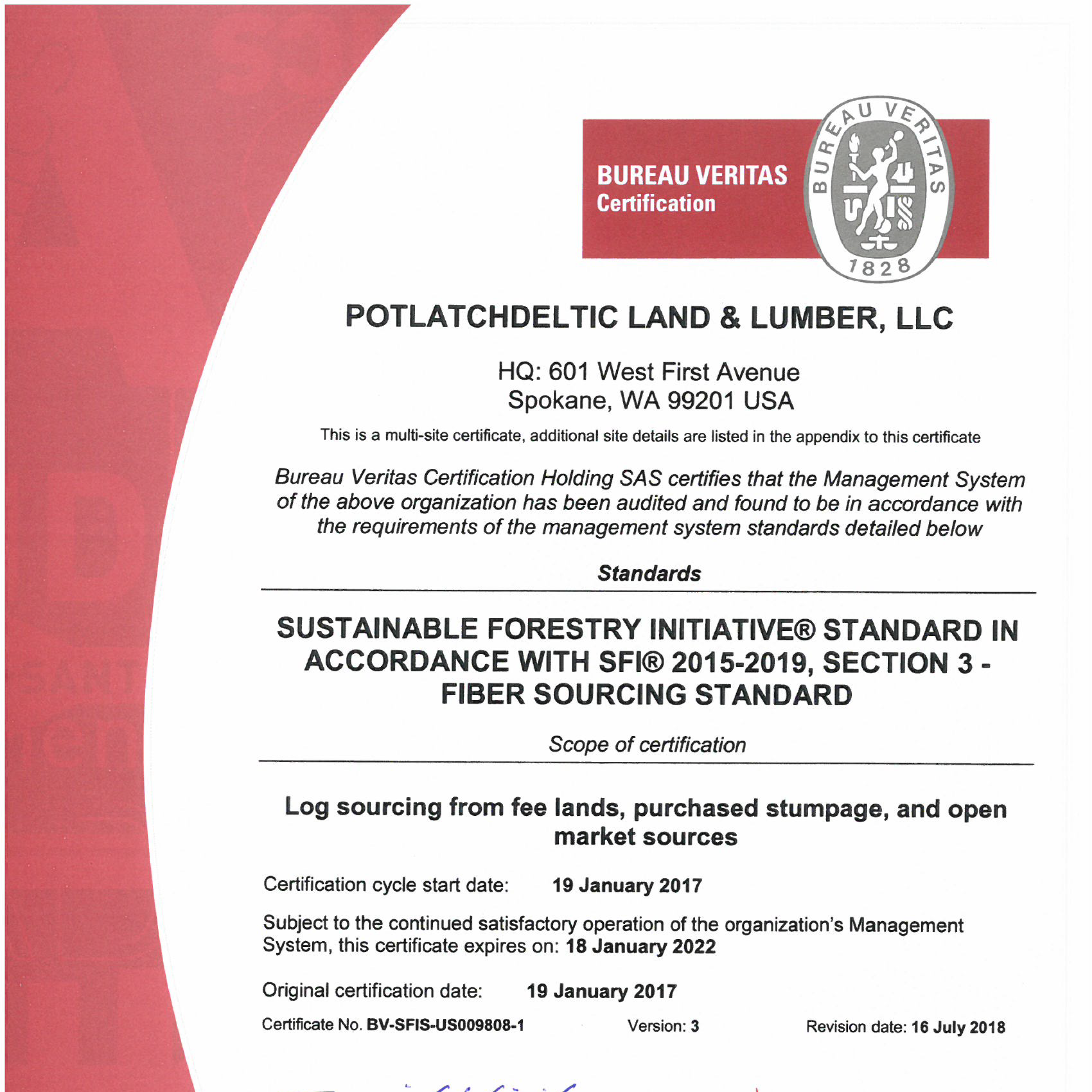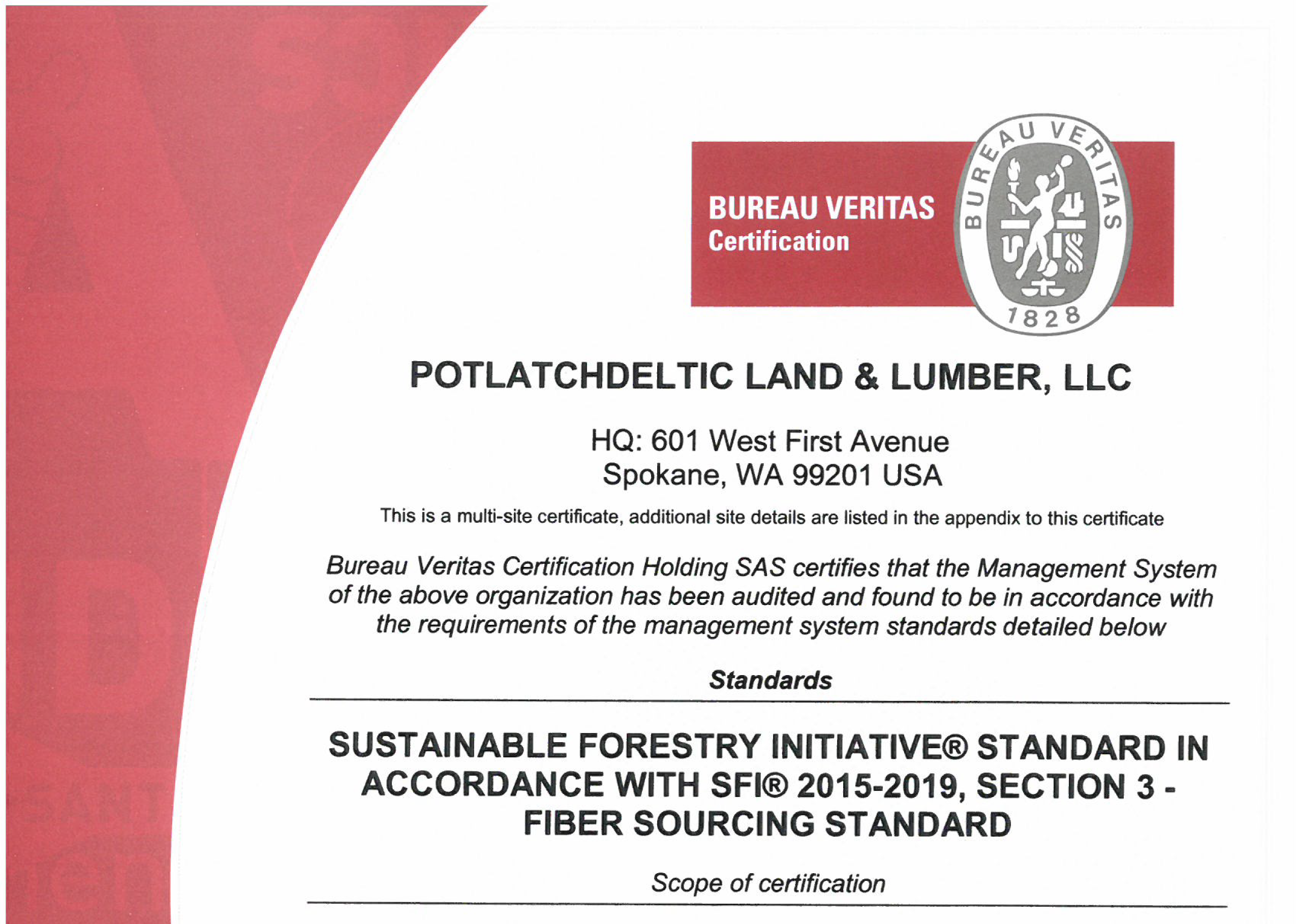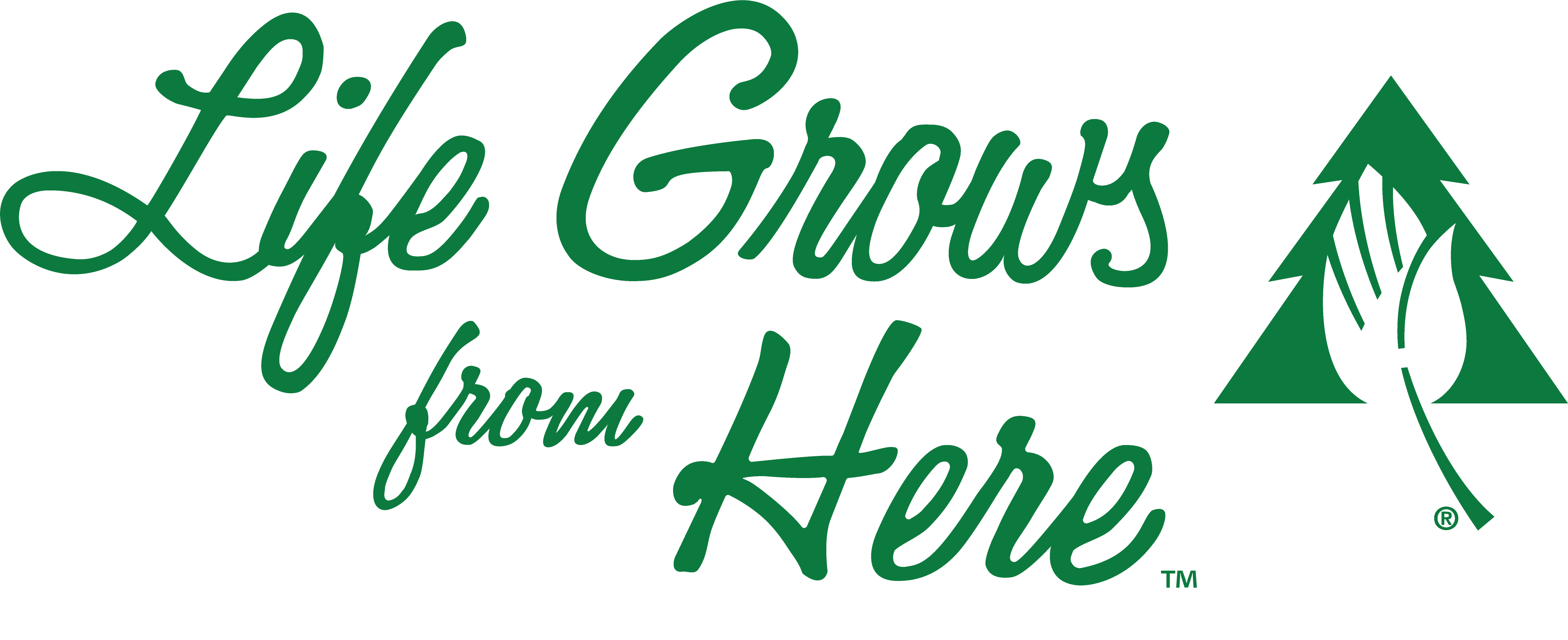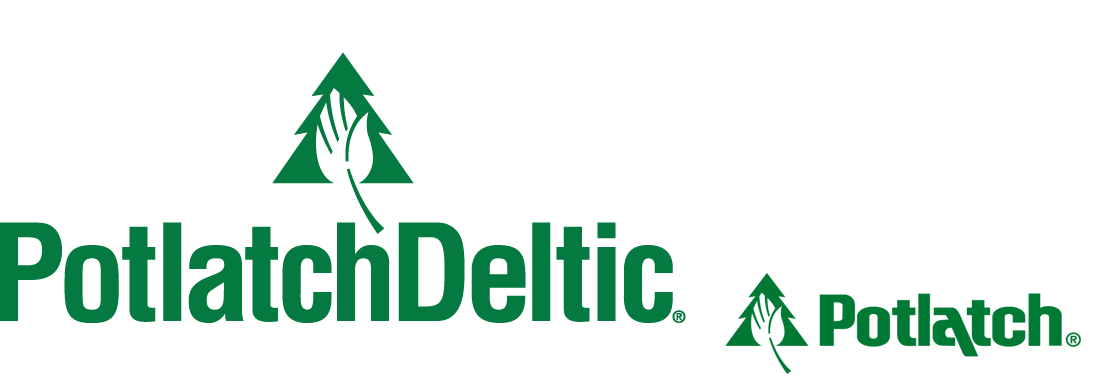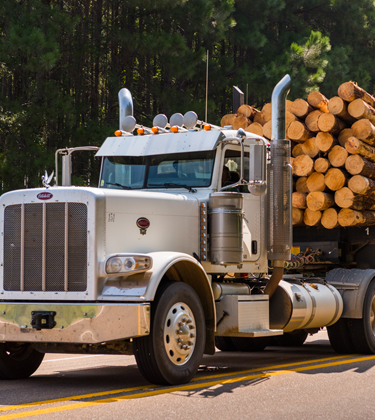
Certification
Committed to Third-Party Certification
Third-party certification confirms that science-based stakeholder developed forest management practices and continual improvement are occurring on all timberland across the Company.
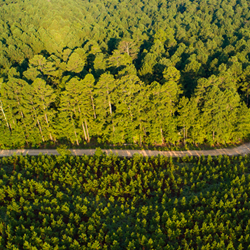
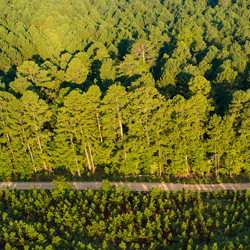
FSC Forest Management certificate
License Number FSC-C102909
FOREST CERTIFICATION
Third-party forest certification plays a vital role in fostering an understanding of the value of properly managed working forests, which helps ensure both tangible forest products and numerous quality-of-life benefits sustainably into the future.
PotlatchDeltic first became third-party certified to standards developed by the Sustainable Forestry Initiative® (SFI®) in 2002 and by the Forest Stewardship Council® (FSC®) in 2004. As a leader in sustainable forestry, we were also the first publicly traded forest products company headquartered in the United States to have our forest management practices certified under the FSC standard. Since that time, we have endeavored to continually improve our forest management practices as new scientific discoveries have been made and forest certification systems have evolved. Independent third-party certification provides a credible assurance that our forest management practices meet clearly defined standards, which have been developed and regularly reviewed by a range of stakeholders interested in the values forests provide.
Our third-party forest certification reflects the rigor of our environmental management system, which includes a continual improvement process. As new information is discovered, practices are adjusted and improved, whether that be in threatened and endangered species management, forest productivity, water quality or climate change. Forest certification challenges us to think long term, and to invest with research organizations to study and improve the industry’s technical knowledge. In addition, it encourages us to engage with the communities and stakeholders who are connected to us through our timberlands and all they have to offer.
SUSTAINABLE FORESTRY INITATIVE: SFI is an independent non-profit sustainability organization that collaborates on forest initiatives with the forest sector, conservation groups, academia, local communities, Indigenous peoples, and educators. SFI recognizes that forestland owners have a responsibility for stewardship through reforestation and the management, growing, nurturing, and harvesting of trees. However, SFI also requires a much broader involvement in areas such as research, community outreach, education, and climate change. SFI oversees the standards for certification of approximately 363 million acres of timberland in North America and 69 million acres in the United States. SFI forest certification is based on 13 principles, 17 objectives, 41 performance measures, and 141 indicators that are centered around promoting sustainable forest management practices. These criteria include forest management planning, prompt reforestation, protection of water quality and quantity, wildlife habitat management and biodiversity, recreational opportunities, protection of species at risk, efficient use of fiber resources, Indigenous peoples’ rights, climate-smart forestry, fire resilience, forest research, forest education, and community outreach.
Certification is a broad effort and encompasses much more than just replanting trees after harvest. For example, the SFI standard includes a multi-faceted approach for education that includes not only ensuring participant staff and logging contractors are appropriately trained as professionals, but also reaching out to students and families to experience the outdoors and to help others understand the importance of sustainable forestry both now and in the future.
SFI forest management standard updates in 2022 also addressed the role of forests as a nature-based solution to climate change. SFI’s Climate Smart Forestry Objective requires that climate change risks to forests and forest operations be identified and addressed with appropriate adaptation strategies implemented. In addition, the updates recognized that forest management is an important catastrophic wildfire mitigation tool. SFI certification requires the evaluation of fire risks, management techniques that mitigate fire impacts, and restoration of forests following wildfire damage.
PotlatchDeltic is certified to the SFI Forest Management Standard on 100% of its timberlands. To meet certification standards, our forest management practices are reviewed through an annual third-party surveillance audit, and full recertification audits every five years.
Our 2024 SFI Forest Management surveillance audits were in Arkansas, Louisiana, and South Carolina and resulted in successful recertification with no non-conformances. We also received one Notable Practice in Arkansas for our red-cockaded woodpecker (RCW) management on our Moro Big Pine Wildlife Management area for the implementation of forest management practices that are designed to provide habitat over the long term and that has currently achieved our full RCW population target.
FOREST STEWARDSHIP COUNCIL: PotlatchDeltic is also certified on 70% of our combined timberlands in Arkansas and Louisiana to FSC Forest Management standards. FSC sets standards for responsible forest management on more than 400 million acres in 89 countries worldwide. Over 148 million acres are FSC certified in North America, including over 35 million acres in the United States. FSC’s mission is to promote environmentally sound, socially beneficial, and economically prosperous management of the world’s forests. In the United States, the FSC standard is based on 10 principles, 56 criteria, and 192 indicators that include compliance with laws, observance of Indigenous rights, conservation of biological diversity and high conservation value forests, water quality protection, community relations and workers’ rights. The FSC U.S. standard is currently undergoing review which is expected to be completed in 2026.
Our decision to dual-certify some of our timberlands through both SFI and FSC reflects the specifications of some of our customers who produce paper and packaging that are sold to international consumers who prefer FSC product certification.
FSC surveillance audits are conducted annually with a full re-certification every five years. Our 2024 FSC Audit found one minor non-conformance for not including the FSC trademark on our Forest Stewardship Policy.
Request a summary of our FSC management plan at
FSCPublicSummary@potlatchdeltic.com
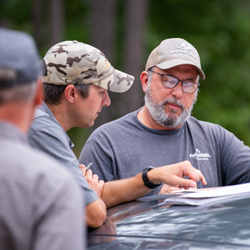
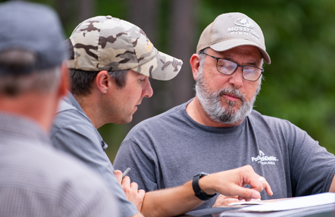
INTERNAL AUDITS
In addition to third-party certification, we also conduct annual internal audits at every forest district to ensure that our environmental management system is effectively implemented. Internal audits focus on adherence to our environmental management system policies and procedures by foresters and professional staff, application of site-level BMPs on the ground, contract logger understanding and application of policies and practices, employee and contractor safety performance, and understanding of fire risk policies and equipment, among many other areas.


